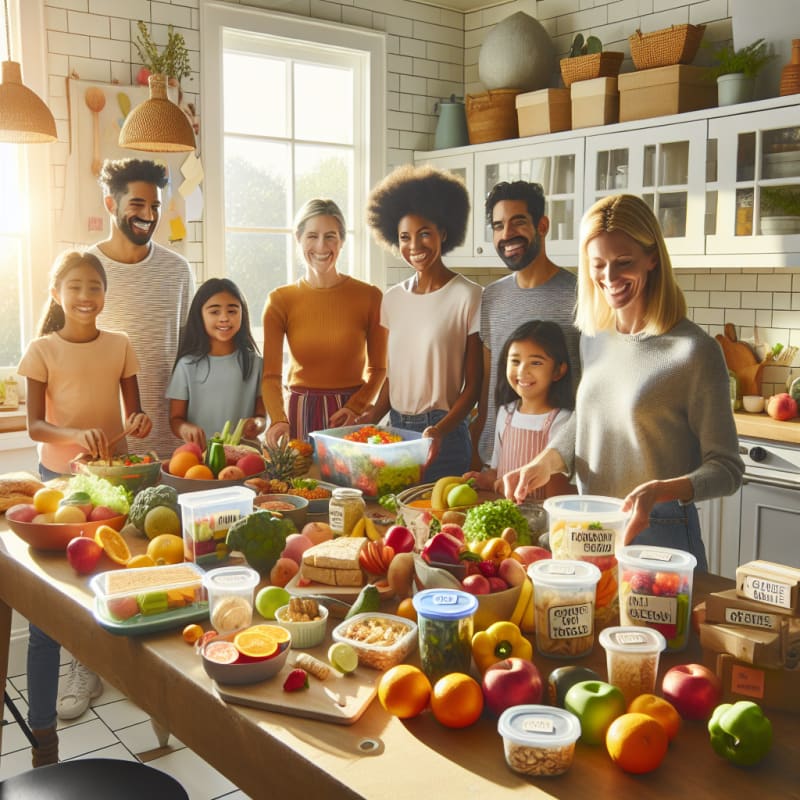The Word Destroying the Planet Isn’t ‘Meat’—It’s ‘Vegan.’ Research Shows Why Language Matters More Than We Think
By Food Scan Genius Team | June 2024
Imagine this: You’re a parent preparing dinner, and your child suddenly develops a rash after eating pasta labeled “vegan.” You scan the ingredients—no milk, no eggs, but what about that mysterious “pea protein isolate” or “natural flavors”? You wonder: Is “vegan” really safer, or is the label making things more confusing?
Why the Language of Food Labels Matters
Recent research highlighted by VegOut and Google News suggests that the words we use—especially “vegan”—shape not just our food choices, but also our perceptions of safety, health, and sustainability. While “meat” has long been scrutinized for its environmental impact, “vegan” is often seen as a universal good. But is this always true?
Key Findings from Recent Studies
- Language influences trust: Consumers often assume “vegan” means “safe” or “healthy,” but this can mask allergens or ultra-processed ingredients [1].
- Labeling laws vary: In the U.S., the FDA requires clear allergen labeling, but definitions of “vegan” are not regulated. In the EU, the EFSA enforces stricter ingredient disclosures [2].
- Food safety risks: Recent news reports, like the FDA’s recall of vegan cheese due to undeclared nuts, show that “vegan” doesn’t always mean allergen-free [3].
How “Vegan” Labels Can Be Misleading
| Label | U.S. (FDA Rules) | EU (EFSA Rules) |
|---|---|---|
| “Vegan” | No legal definition; voluntary labeling; allergens must be listed | No harmonized definition; stricter allergen and ingredient disclosure required |
| Allergen Disclosure | Top 9 allergens must be declared (milk, eggs, fish, shellfish, tree nuts, peanuts, wheat, soybeans, sesame) | 14 allergens must be declared (includes celery, mustard, lupin, etc.) |
| Ingredient Transparency | Ingredient list required; “natural flavors” can be vague | Ingredient list required; stricter rules on additive disclosure |
How This Impacts People with Food Sensitivities
- “Vegan” products can still contain soy, nuts, gluten, or other allergens.
- Ingredient lists may use unfamiliar names or umbrella terms like “spices” or “flavors.”
- Food recalls for contamination or mislabeling are on the rise, especially in plant-based categories.
Current Food Safety Alerts and Trends
- Food Recalls: The FDA and EFSA regularly update food safety alerts, including for vegan and plant-based products.
- Labeling Laws: The EU recently proposed stricter rules on plant-based product labeling to prevent consumer confusion [3].
- Emerging Trends: New dietary trends like keto, low-FODMAP, and allergen-friendly foods are driving demand for clearer, more transparent labeling.
How Food Scan Genius Simplifies Smart Food Choices
Reading labels shouldn’t be a guessing game. The Food Scan Genius app empowers users to:
- Scan barcodes on any packaged food—vegan, gluten-free, keto, or conventional.
- Instantly see if a product contains allergens, animal-derived ingredients, or additives of concern.
- Compare ingredient lists from the U.S. and EU, so you know exactly what’s inside—wherever you shop.
- Get real-time alerts about recalls, contamination, or regulatory changes that affect your dietary needs.
User Testimonial: “As a parent with a child allergic to nuts and dairy, Food Scan Genius has been a lifesaver. I just scan, and it tells me if a ‘vegan’ product is truly safe. I recommend it to every family!” — Maria, Chicago
Download Food Scan Genius and take the guesswork out of your next grocery trip.
FAQs: Vegan Labels, Allergen Safety, and Smart Shopping
Does “vegan” mean allergen-free?
No. Vegan products can still contain allergens like soy, nuts, and gluten. Always check the ingredient list and use tools like Food Scan Genius to confirm safety.
How do labeling laws differ between the U.S. and EU?
The U.S. FDA requires disclosure of 9 major allergens, while the EU’s EFSA mandates 14. The EU generally requires more detailed ingredient and additive labeling.
How can I stay updated on food recalls and safety alerts?
Monitor official sources like the FDA and EFSA, or use Food Scan Genius for real-time updates tailored to your needs.
What should I do if my child reacts to a “vegan” product?
Stop using the product, check the full ingredient list, and consult your healthcare provider. Report the incident to the FDA or EFSA, and consider scanning future products for hidden allergens.
Conclusion: Smarter Choices Start with Clear Language
Whether you’re a parent, a vegan, or someone with food sensitivities, the word “vegan” isn’t a guarantee of safety or simplicity. Understanding ingredients, following food safety news, and using tools like Food Scan Genius can help you make informed, confident choices—so your next meal is safe, healthy, and stress-free.
Try Food Scan Genius today and empower your family’s food journey.
References:
[1] PubMed: Consumer Perceptions of Vegan Labeling
[2] EFSA: Food Labelling in the EU
[3] FoodNavigator: Vegan Cheese Recall Highlights Labeling Gaps





